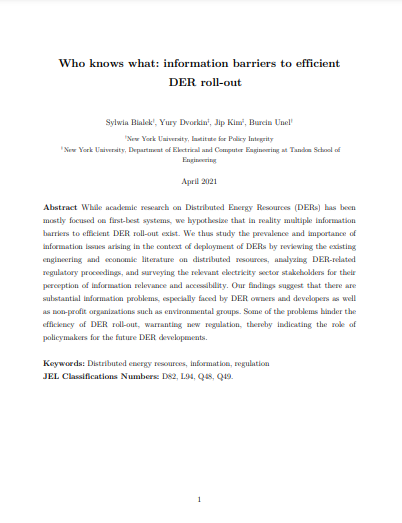The Institute for Policy Integrity produces a variety of publications. Our research reports develop in-depth research on our core issues, while our policy briefs and issue briefs provide focused analysis on more timely or particular topics. Our academic articles and working papers offer original scholarly research and analysis from established experts as well as fresh new voices.
Latest Publications
-
Who Knows What: Information Barriers to Efficient DER Roll-Out
Published in International Association of Energy, Environment and Economy Journal
While academic research on Distributed Energy Resources (DERs) has been mostly focused on first-best systems, we hypothesize that in reality multiple information barriers to efficient DER roll-out exist. We thus study the prevalence and importance of information issues arising in the context of deployment of DERs by reviewing the existing engineering and economic literature on distributed resources, analyzing DER-related regulatory proceedings, and surveying the relevant electricity sector stakeholders for their perception of information relevance and accessibility.
-
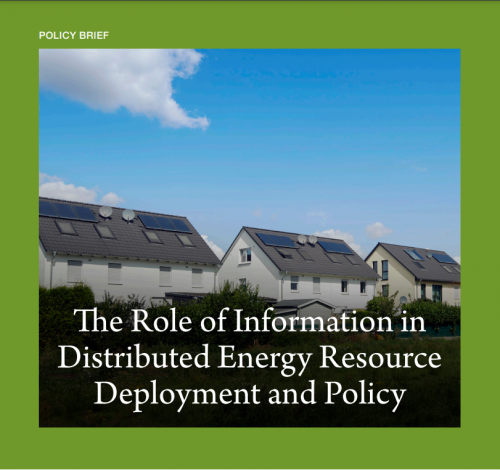
The Role of Information in Distributed Energy Resource Deployment and Policy
While appropriate compensation for DERs has received considerable attention in DER policy discussions, one important dimension has received less attention: informational gaps and asymmetries. In particular, key information about distribution networks, energy consumption, and marginal emission rates is often either entirely lacking or readily available only to some parties. Such information disparities can impede effective policymaking. To overcome the inefficiencies information asymmetry creates, regulators must carefully tailor disclosure mandates and incentives for utilities, as these actors often have little incentive to go beyond the letter of the law in data disclosure.
-
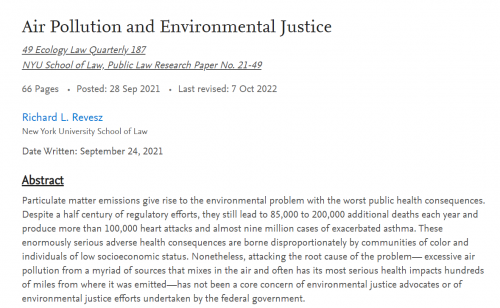
Air Pollution and Environmental Justice
Published in Ecology Law Quarterly
The article examines the failures of the U.S. Environmental Protection Agency to address the environmental justice harms from air pollution and identifies three recent development that could augur beneficial change.
-
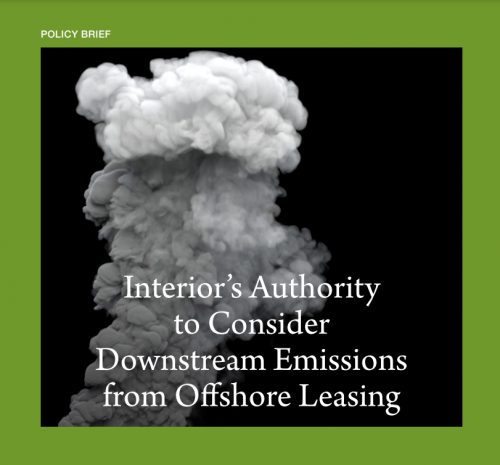
Interior’s Authority to Consider Downstream Emissions from Offshore Leasing
In its proposed Outer Continental Shelf oil and gas leasing program for 2023–2028, the Bureau of Ocean Energy Management (BOEM) claims that it cannot consider downstream greenhouse gas emissions when setting leasing policy because of a 2009 D.C. Circuit case, Center for Biological Diversity v. Department of the Interior (CBD). This Policy Brief explains that BOEM misreads CBD, which held only that the Outer Continental Shelf Lands Act (OCSLA) does not require the agency to consider downstream effects. The Policy Brief further explains that neither CBD nor any other case law bars BOEM from considering downstream effects and that consideration of such effects is in fact consistent with the text, legislative history, and regulatory history of OCSLA.
-
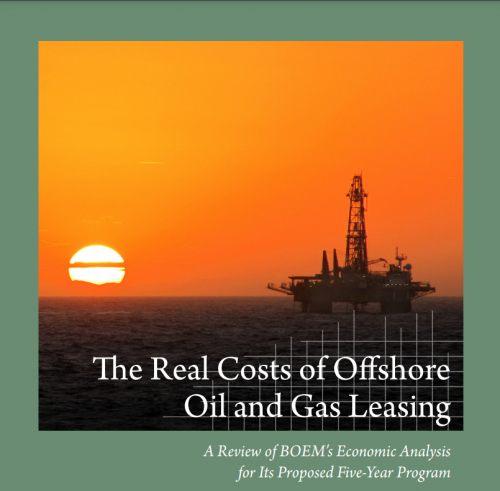
The Real Costs of Offshore Oil and Gas Leasing
A Review of BOEM’s Economic Analysis for Its Proposed Five-Year Program
In July 2022, the Bureau of Ocean Energy Management (BOEM) released its proposed Outer Continental Shelf oil and gas leasing program for 2023–2028. That plan contemplates holding up to 11 lease sales over the next five years, and conducts an economic analysis concluding that the benefits of those lease sales would exceed the costs. This report provides comprehensive feedback on BOEM’s economic analysis. As the report details, BOEM vastly understates the environmental and social costs of offshore leasing in several key ways.

